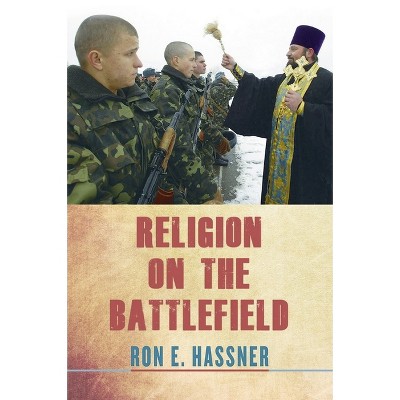Liminal Minorities - (Religion and Conflict) by Günes Murat Tezcür (Paperback)

About this item
Highlights
- Winner of the Religion and International Relations Book Award of the Religion and International Relations Section of the International Studies Association.
- About the Author: Güneş Murat Tezcür is the Director of the School of Politics and Global Studies at Arizona State University.
- 270 Pages
- Political Science, Religion, Politics & State
- Series Name: Religion and Conflict
Description
About the Book
"Why do some religious minorities, lacking any significant power and presenting no imminent threat, become targets of violent attacks? This book is a comparative-historical study of mass atrocities targeting liminal minorities including Yezidis in Iraq in the 2010s and Alevis in Turkey in the late twentieth century"--Book Synopsis
Winner of the Religion and International Relations Book Award of the Religion and International Relations Section of the International Studies Association. Winner of the American Political Science Association Middle East and North Africa Politics Section Best Book Award by a Senior Scholar.
Winner of the Hubert Morken Award of the Religion and Politics Section of the American Political Science Association.
Liminal Minorities addresses the question of why some religious minorities provoke the ire of majoritarian groups and become targets of organized violence, even though they lack significant power and pose no political threat. Güneş Murat Tezcür argues that these faith groups are stigmatized across generations, as they lack theological recognition and social acceptance from the dominant religious group. Religious justifications of violence have a strong mobilization power when directed against liminal minorities, which makes these groups particularly vulnerable to mass violence during periods of political change.
Offering the first comparative-historical study of mass atrocities against religious minorities in Muslim societies, Tezcür focuses on two case studies--the Islamic State's genocidal attacks against the Yezidis in northern Iraq in the 2010s and massacres of Alevis in Turkey in the 1970s and 1990s--while also addressing discrimination and violence against followers of the Bahá'í faith in Iran and Ahmadis in Pakistan and Indonesia. Analyzing a variety of original sources, including interviews with survivors and court documents, Tezcür reveals how religious stigmatization and political resentment motivate ordinary people to participate in mass atrocities.
Review Quotes
Liminal Minorities important and timely contribution and a much needed corrective on the curious neglect of religious beliefs as a direct causal mechanism of violence.
-- "Perspectives on Politics"About the Author
Güneş Murat Tezcür is the Director of the School of Politics and Global Studies at Arizona State University. He is the author of Muslim Reformers in Iran and Turkey and the editor of The Oxford Handbook of Turkish Politics.











